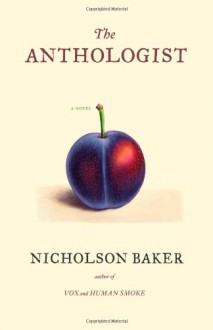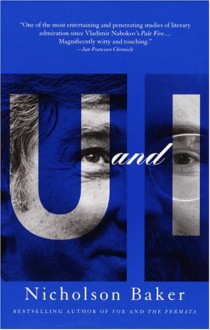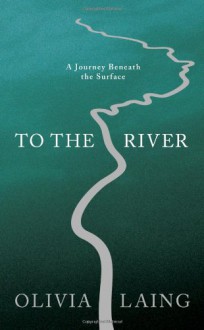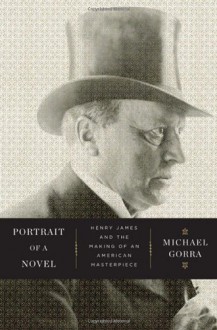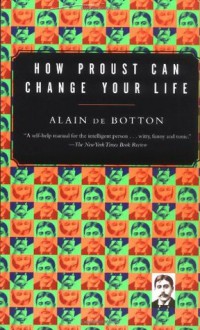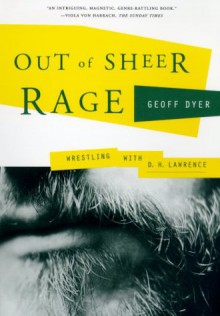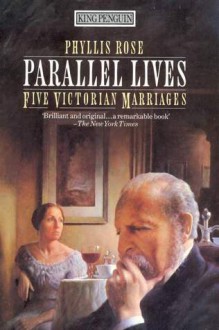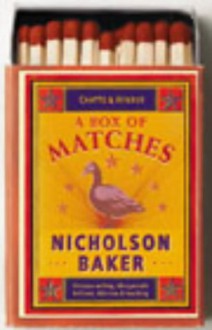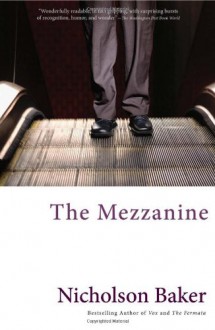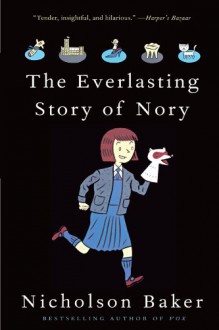
Sometimes the problem with telling someone about a book was that the description you could make of it could just as easily be a description of a boring book. There's no proof that you can give the person that it's a really good book, unless they read it. But how are you going to convince them that they should read it unless they have a glint of what's so great about it by reading a little of it?
When I read these musings of a little nine-year-old girl, all I could think was, "Welcome to my world, kid." Seriously, what book blogger hasn't had that thought at least once a week? If this hadn't been set in the mid-90's, Baker might have been tempted to have his protagonist take to blogspot to talk about her favorite books (which I absolutely would have read).
Nory, her parents and her two-year old brother have moved to England from Palo Alto, CA, where she attended a Chinese Montessori School. She's now attending a Roman Catholic school with grades and a structured curriculum. Which isn't an easy transition for her (as you'd expect). As she's an "Americayan" with a strange accent and difficulty understanding British phrases, she's on the outside of her school's social structure.
This is rough for her, but I think it'd be rougher for other kids. Nory has an incredibly vivid imagination and tells herself stories (some of which she writes down, some she enacts with dolls and toys, some of which she just says to anyone who might be around). They are intricate, inventive, and as entertaining as the parts of the book that are about Nory (arguably more so). When times are tough, when she's bored, when she needs to entertain her brother, when she has trouble sleeping -- these stories are there for her. The reader gets to go along for the ride with her -- which is a nice bonus.
When she's not making up stories (or opining on the construction of them), she's struggling through school and through the mine field that is making friends, and searching for a best friend. There's a girl who frequently seems to like Nory, but would appreciate it if Nory would change a few things. There's another girl who is bullied, teased, and generally disparaged by the rest of her class. Nory very unsuccessfully tries to defend her, but mostly just tries to be friendly to her.
And that's the bulk of the book -- there's some "slice of life" stuff with her family, some parts where Nory remembers Palo Alto and the Chinese Montessori school -- that kind of thing. But mostly it's the tale of a few months of a 9 year-old looking for a friend, trying to stay out of trouble in a school she doesn't understand and playing with her dolls.
Nory is a girl of opinions -- some of them very strong. She has very definite ideas about storytelling, and what's necessary to a successful story or book. Ironically, this book fails Nory's own tests due to its lack of plot, and relatively small stakes. That's probably an intended irony, and Baker's really saying that people like me that want plots like Nory insists on have child-like tastes. I don't know that to be the case, but I'd be willing to put money on it.
It's told in third-person, but the narration is very stream of consciousness, very nine-year-old stream of consciousness -- bouncing all over the place with a short attention span, and nine-year old misunderstandings of life around her. It's delightful to read, and only a little annoying when you pause to reflect on what's happening (or better, what's not happening). In the moment, it's just fun to surround yourself with Nory's thoughts.
I won't say this is a must-read, but if you give it a shot, I can't help but think you'll be rewarded. It's perfectly safe for anyone Nory's age or older to read, but I can't imagine many people Nory's age will appreciate it (but I could be wrong). It's better appreciated by those of us who can remember some of what it's like to be her age. I liked it, am glad I tried it and I expect you will be, too.

 Log in with Facebook
Log in with Facebook 
